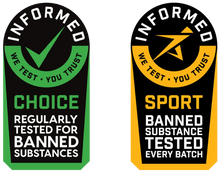Effects of Seawater Ingestion on Lactate Response to Exercise in Runners
Hydration plays a critical role in aerobic exercise performance. Dehydration can impair performance through multiple physiological mechanisms, including cardiovascular, elevated tissue temperatures, and metabolic changes that reduce motor drive to skeletal muscles. In endurance athletes, hypohydration can also affect the lactate threshold, which is clearly related to endurance performance potential.
A recent study investigated the effect of microfiltered and sterilized seawater (SW) ingestion on running performance in a hot environment. The study found that compared to pure water, SW ingestion resulted in a significantly lower concentration of lactate after running exercise, indicating the ergogenic effects of SW ingestion on running performance and lactate production.
SW is rich in 78 minerals and trace elements that work together to maintain exercise performance during hypohydrated conditions. Electrolytes such as sodium, potassium, chlorine, and magnesium are lost through perspiration during prolonged running. Drinking SW can help maintain levels of various electrolytes used during exercise and re-establish normal functions of the human body.
In conclusion, the study provides evidence supporting the ergogenic effects of microfiltered and sterilized seawater ingestion on running performance and lactate production. Preventing dehydration should be reflected by an unincreased blood lactate concentration. Further studies on physiological mechanisms affecting human performance and differences in seawater products are needed.













